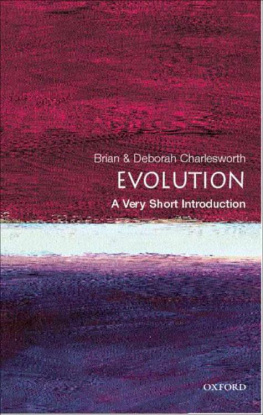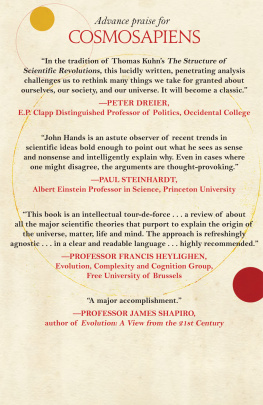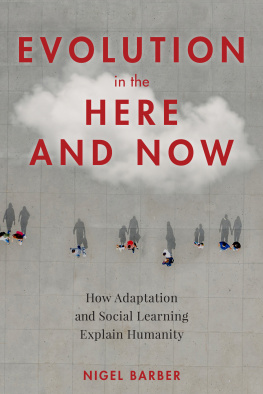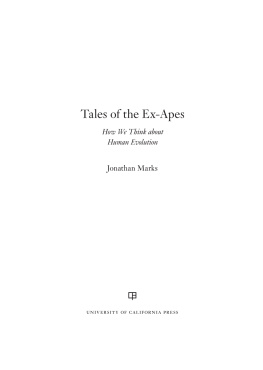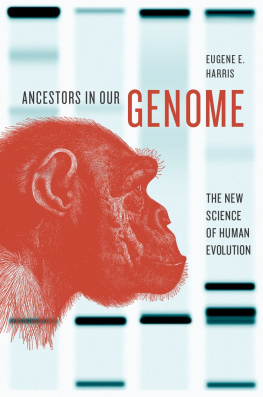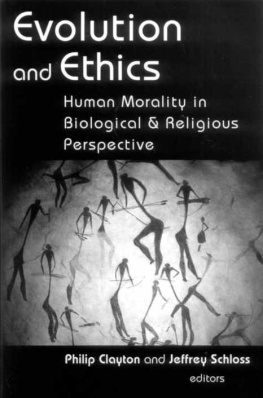THE
10,000 YEAR
EXPLOSION
Q2
HOW CIVILIZATION
ACCELERATED HUMAN EVOLUTION
GREGORY COCHRAN HENRY HARPENDING
THE
10,000 YEAR EXPLOSION
This page intentionally left blank
THE
10,000 YEAR EXPLOSION
HOW CIVILIZATION ACCELERATED HUMAN EVOLUTION
Gregory Cochran and Henry Harpending
BASIC
B
BOOKS
A Member of the Perseus Books Group New York
Copyright 2009 by Gregory Cochran and Henry Harpending Published by Basic Books, A Member of the Perseus Books Group All rights reserved. Printed in the United States of America. No part of this book may be reproduced in any manner whatsoever without written permission except in the case of brief quotations embodied in critical articles and reviews. For information, address Basic Books, 387 Park Avenue South, New York, NY 10016-8810. Books published by Basic Books are available at special discounts for bulk purchases in the United States by corporations, institutions, and other organizations. For more information, please contact the Special Markets Department at the Perseus Books Group, 2300 Chestnut Street, Suite 200, Philadelphia, PA 19103, or call (800) 810-4145, ext. 5000, or e-mail special.markets@perseusbooks.com . Designed by Pauline Brown Library of Congress Cataloging-in-Publication Data Cochran, Gregory. The 10,000 year explosion : how civilization accelerated human evolution / Gregory Cochran and Henry Harpending. p. cm. Includes bibliographical references and index. ISBN 978-0-465-00221-4 (alk. paper) 1. Human evolution. 2. Genetics. I. Harpending, Henry. II. Title. III. Title: Ten thousand year explosion. [DNLM: 1. Evolution. 2. Hominidae. 3. Civilization. 4. Genome genetics. GN 281.4 C663z 2009] GN281.4.C632 2009 599.93'8dc22 2008036672 10 9 8 7 6 5 4 3 2 1
TO OUR FAMILIES
This page intentionally left blank
CONTENTS Preface ix OVERVIEW: CONVENTIONAL WISDOM 1 MEDIEVAL EVOLUTION: HOW THE ASHKENAZI JEWS GOT THEIR SMARTS 187 CONCLUSION 225 Notes 229 Glossary 243 Bibliography 253 Credits 267 Index 269
This page intentionally left blank
PREFACE For most of the last century, the received wisdom in the social sciences has been that human evolution stopped a long time agoin the most up-to-date version, before modern humans expanded out of Africa some 50,000 years ago. This implies that human minds must be the same everywherethe "psychic unity of mankind." It would certainly make life simpler if it were true. Unfortunately, a recent halt to evolution also implies that human bodies must be the same everywhere, which is obviously false. Clearly, received wisdom is wrong, and human evolution continued. In the light of modern evolutionary theory, it is difficult to imagine how it could have been otherwise. Since the social sciencesanthropology in particular haven't exactly covered themselves with glory, we have decided to take a new tack in writing this book, one that takes the implications of evolutionary theory seriously while cheerfully discarding unproven anthropological doctrines. Our approach leans heavily on geneticsand with genetic information accumulating at an incredible rate, due to the ongoing revolution in molecular biology, it is an approach that we believe has been very fruitful. At the same time, we make use of paleontology, archaeology, and good old-fashioned history to support ourarguments. We think that it is mistake to neglect any relevant information. A lot of our work could be called "genetic history." It's a new kind of history: We share the usual facts, but we use a very different explanatory framework. Traditional historians tell the stories of battles and kingdoms and great men. Some study the history of ideas, or of science and technology. Quantitative historians examine commerce and demographic trends. We, however, are interested in the historical factors that have influenced natural selection in humans, particularly those having to do with the creation and spread of new, favorable alleles. This means that when a state hires foreign mercenaries, we are interested in their numbers, their geographic origin, and the extent to which they settled down and mixed with the local population. We don't much care whether they won their battles, as long as they survived and bred. We're not particularly interested in their cultural baggage unless it changes selection pressures or influences gene flow. Conventional social sciences, such as history and anthropology, chiefly concern themselves with brain software, by which we mean cultural developments such as mores, mythology, or social structure. Genetic history addresses changes in the underlying hardware, changes in body and brain, which also matter. If they didn't, dogs really could play poker. For an anthropologist, it might be important to look at how farmers in a certain region and time period lived; for us, as genetic historians, the interesting thing is how natural selection allowed agriculture to come about to begin with, and how the new pressures of an agricultural lifestyle allowed changes in the population's genetic makeup to take root and spread. We take this same approach whether we are looking at the humanrevolution of the Paleolithic period, the agricultural revolution of 10,000 years ago, or the modern development of the Ashke- nazi Jews of Europe, who rose to intellectual prominence in the West quite recently after experiencing unique natural-selection pressures during the Middle Ages. We arrived at this approach via different paths. Gregory Cochran was trained as a physicistand following theory where it leads, no matter how odd, comes naturally to a physicist. Henry Harpending began his graduate career with enthusiasm for the social sciences. Years of disillusionment with the status quo in these fields led him to into demography and genetics, areas where he believes there is real theory with strong links to the rest of the sciences. Many colleagues have provided suggestions, ideas, and objections to the material in this book. We are grateful to all of them for their help and their criticism. Particularly prominent among these colleagues are John Hawks of the University of Wisconsin; Robert Moyzis and Eric Wang of the University of California at Irvine (Wang is now at Affymetrix Corporation); and Alan Rogers, Doug Jones, and Renee Pennington of the University of Utah. We have also benefited from discussions with members of the Human Biodiversity Internet discussion group run by Steve Sailer. We are indebted to Kristen Hawkes, James O'Connell, Dennis O'Rourke, and Jon Seger of the University of Utah; Gregory Clark of the University of California at Davis; Alan Fix of the University of California at Riverside; Montgomery Slatkin of the University of California at Berkeley; Kim Hill of Arizona State University; Bruce Lahn of the University of Chicago; Mel Konner of Emory University; Jeremy Stone of Catalytic
Diplomacy; Razib Khan of the GNXP Web site; James Lee of Harvard University; Rosalind Arden of King's College London; Phil Rushton of the University of Western Ontario; and Balaji Srinavasan of Stanford University. Parts of this work were supported by the Unz Foundation.
Homo erectus and descendants occupy much of temperate Old World about 1.8 mya to 500 thousand years ago Control of fire, prepared core stone tool technologies Modern humans leave Africa to populate much of Europe, Asia, Oceania about 50,000 years ago
Modern looking humans in NE Africa, invade Middle East during warm period
Neanderthals develop in Europe and Western Asia
Empires around Mediterranean and China 2000 years ago
Development and spread of Indo-European speakers about 6000 years ago
Last glacial maximum about 20,000 years ago
Agriculture develops in several centers about 10,000 years ago
Ashkenazi prosper in northern Europe 1200 to 400 years ago
100,000 10,000 1000
1,000,000
Years Before Present
This page intentionally left blank
Next page


